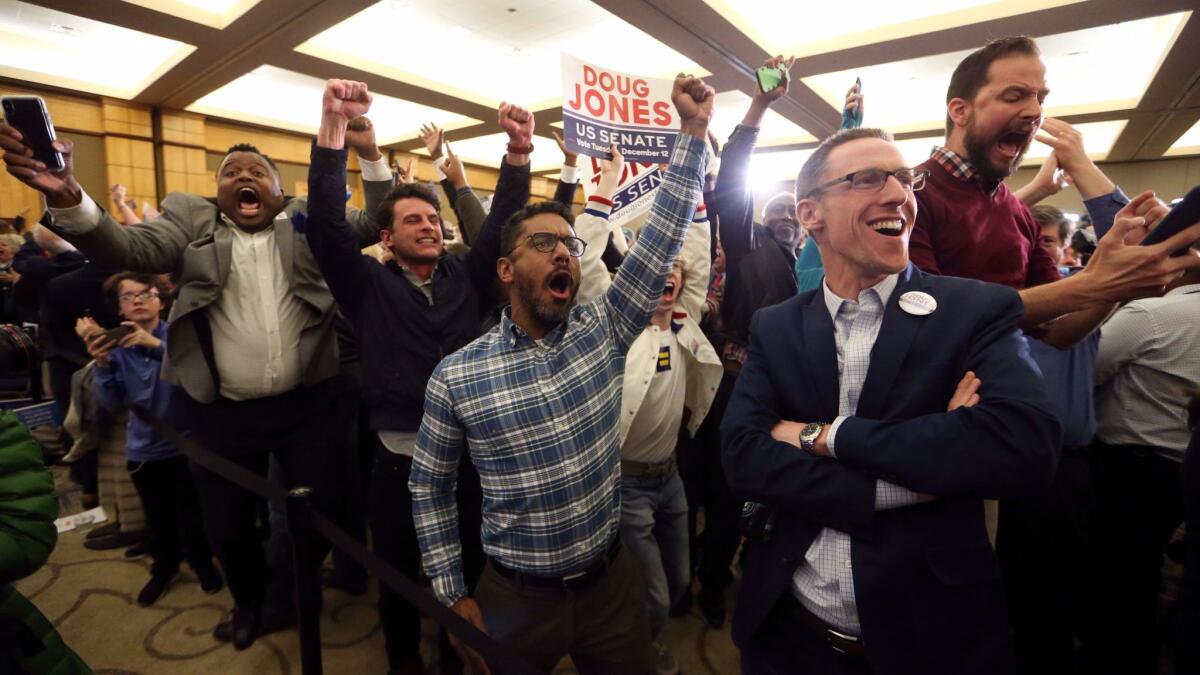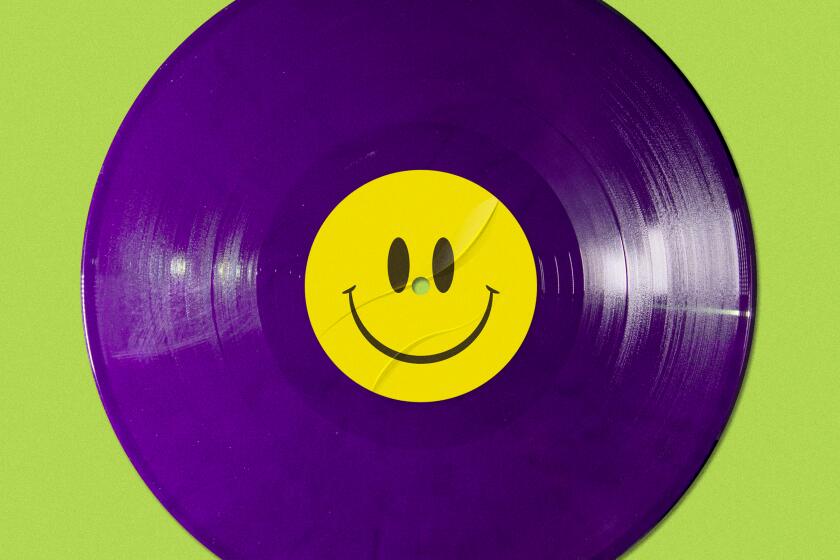Opinion: People of color saved Alabama from Roy Moore

Good morning. I’m Paul Thornton, and it is Saturday, Dec. 16, 2017. Today will be only the second day in December on which the high temperature is forecast to be at or below normal for this time of year in Los Angeles. Let’s take a look back at the week in Opinion.
Why did Roy Moore lose in Alabama, arguably the deepest-red state in the country? The satisfying answer would be that the voters there — who saw their choice as a clear-cut decision between an accused child molester with repugnant cultural and political views, and a decent, mainstream Democrat — simply made the right call about which person to send to the United States Senate.
But that analysis is unfair to the coalition of women and minorities who supported Democrat Doug Jones and too charitable toward the white voters — both men and women, young and old — who overwhelmingly backed Republican Roy Moore. In fact, writes Democratic political consultant Joshua Goodman in a Los Angeles Times op-ed article, Jones should thank people of color for making the right choice:
Jones did not win because Republicans en masse chose “country over party,” as Republican Sen. Jeff Flake of Arizona said when he crossed party lines to donate all of $100 to Jones.
Rather, he won because black voters turned out in unprecedented numbers for an election of this kind. According to exit polls, the 2017 Alabama electorate was 30% black. In 2012, with President Obama at the top of the ticket, it was 28% black. Some majority black counties voted at around three-quarters of their presidential turnout, while some of the largest majority white counties were closer to 55% of their presidential average, according to initial returns. This made the difference between Sen. Jones and Sen. Moore.
Millennial Alabamians appear to have voted for Jones by a margin of at least 22 percentage points. But a GenForward survey released earlier this year found that white millennials hold views largely in line with older white Americans. The reason millennials overwhelmingly support Democrats in 2017 is not that the average millennial is further left than the average baby boomer — it is because the average millennial is far more likely to be a person of color than the average baby boomer.
White conservatives did not flip to Jones in a significant way. And even if they had, that is not a sustainable electoral model, as Democrats will eventually have to run against candidates who, unlike Moore and Trump, have a moral compass and a vague sense of decency. Jones won because white conservatives stayed home, while black liberals and leftists turned out. ...
This is the lesson of the Alabama upset. The Democratic Party doesn’t need to win over people with wildly different values — it doesn’t need Bill Kristol, or Jeff Flake, or George W. Bush — it needs to give its base a reason to vote. The base of the Democratic Party is Americans of color, and the party can win by showing that it understands that.
The last we’ll read of Roy Moore, hopefully: Does his defeat signal the beginning of the end of Trumpism in America? Not likely, says The Times’ Editorial board, for the forces that propelled the president to office still remain strong. Jamil Smith points out the personal qualities and offenses besides alleged sexual predation that ought to have made Moore unelectable. Melissa Batchelor Warnke reminds us that a win’s a win, even if nearly half of the people who voted in Alabama preferred the accused child molester.
Think it’s easy to accuse a powerful man of harassment? Think again. After Anna Graham Hunter wrote a personal essay in November alleging that Dustin Hoffman harassed her decades ago, she worked with other women who said they had similar experiences with the actor and were preparing to go on the record with their stories. Multiple women, for various reasons, chose instead to remain silent or did not have their accounts published. “What the public perceives as an onslaught is just a fraction of what’s going on,” Hunter writes. L.A. Times
Much of California is aflame, and the fires show every sign of burning straight through Christmas. So now, writes climate activist Bill McKibben, seems as good a time as any for major companies and wealthy investors to divest themselves of any business that makes its money extracting and burning the fossil fuels that have caused climate change. “Congresses and parliaments are not the only halls of power,” McKibben writes. “Finance, not politics, may turn out to be the soft underbelly of the climate monster.” New York Times
“An ugly new era” for internet users: The Federal Communications Commission voted this week to roll back net neutrality standards, a move that Chairman Ajit Pai insists is just a return to the light-touch federal regulations under which the internet developed and thrived. “That’s transparently false, and Pai knows it,” says The Times Editorial Board. L.A. Times
Dreidel: an absurd game with a moral lesson. The Hanukkah tradition seems straightforward — until you try playing it. Some of the chocolate coins are big, but most are tiny (how fair is that?); no one agrees when the game ends; and when is everyone supposed to contribute to an increasingly empty pot? But in the end, writes UC Riverside philosophy professor Eric Schwitzgebel, “Dreidel, then, is a practical lesson in discovering the value of fairness both to oneself and to others.” L.A. Times
Reach me: paul.thornton@latimes.com
Sign up for The Wild
We’ll help you find the best places to hike, bike and run, as well as the perfect silent spots for meditation and yoga.
You may occasionally receive promotional content from the Los Angeles Times.




